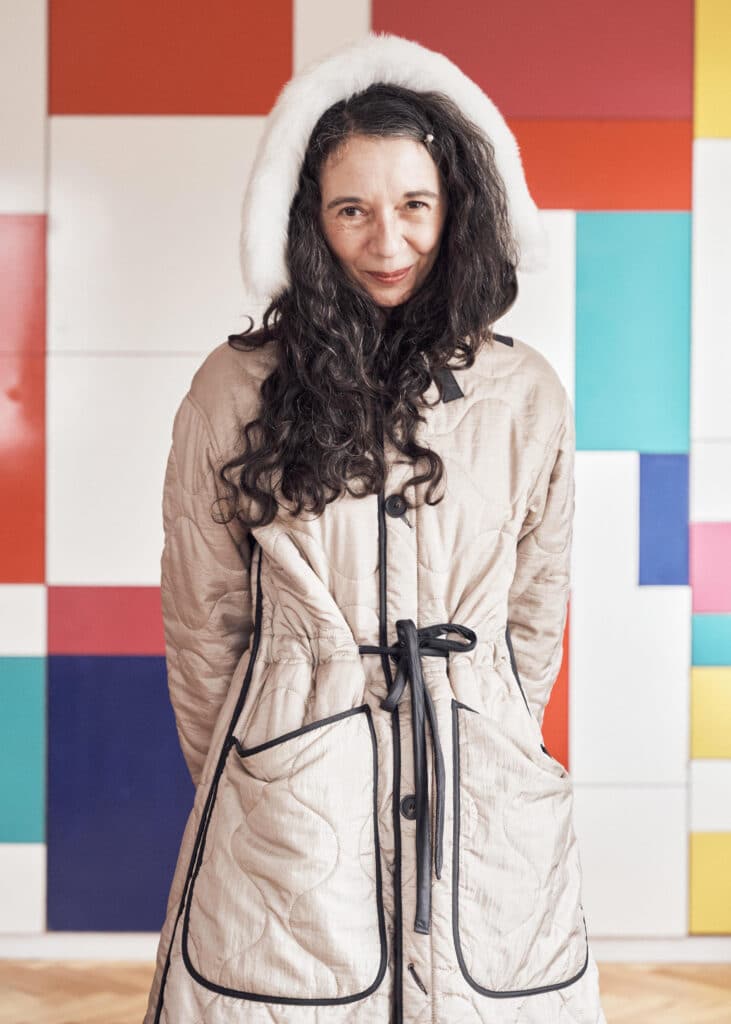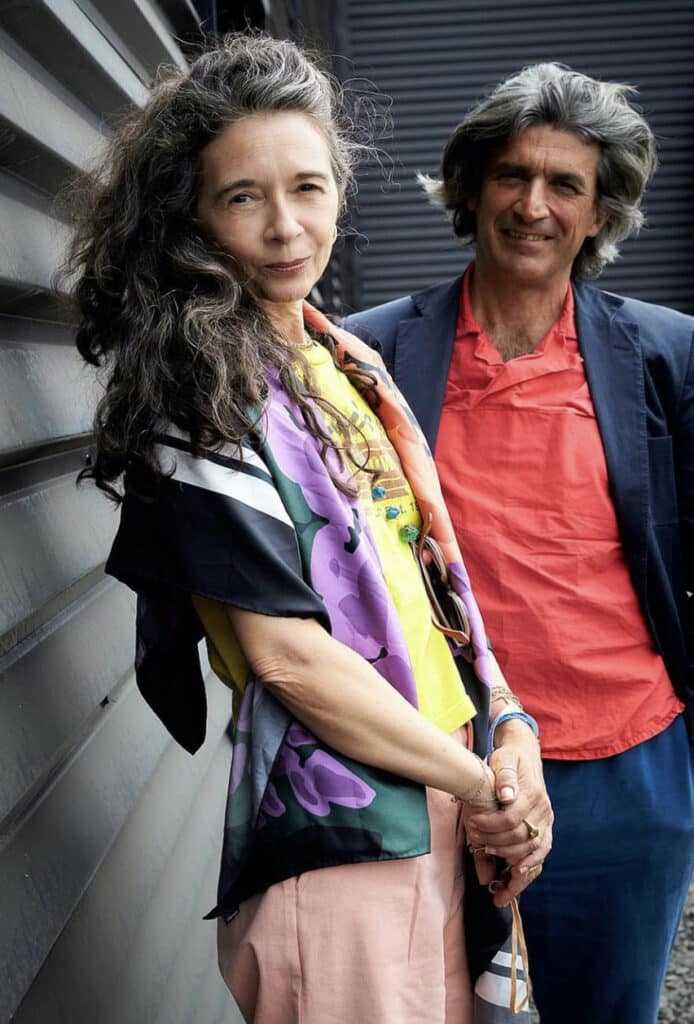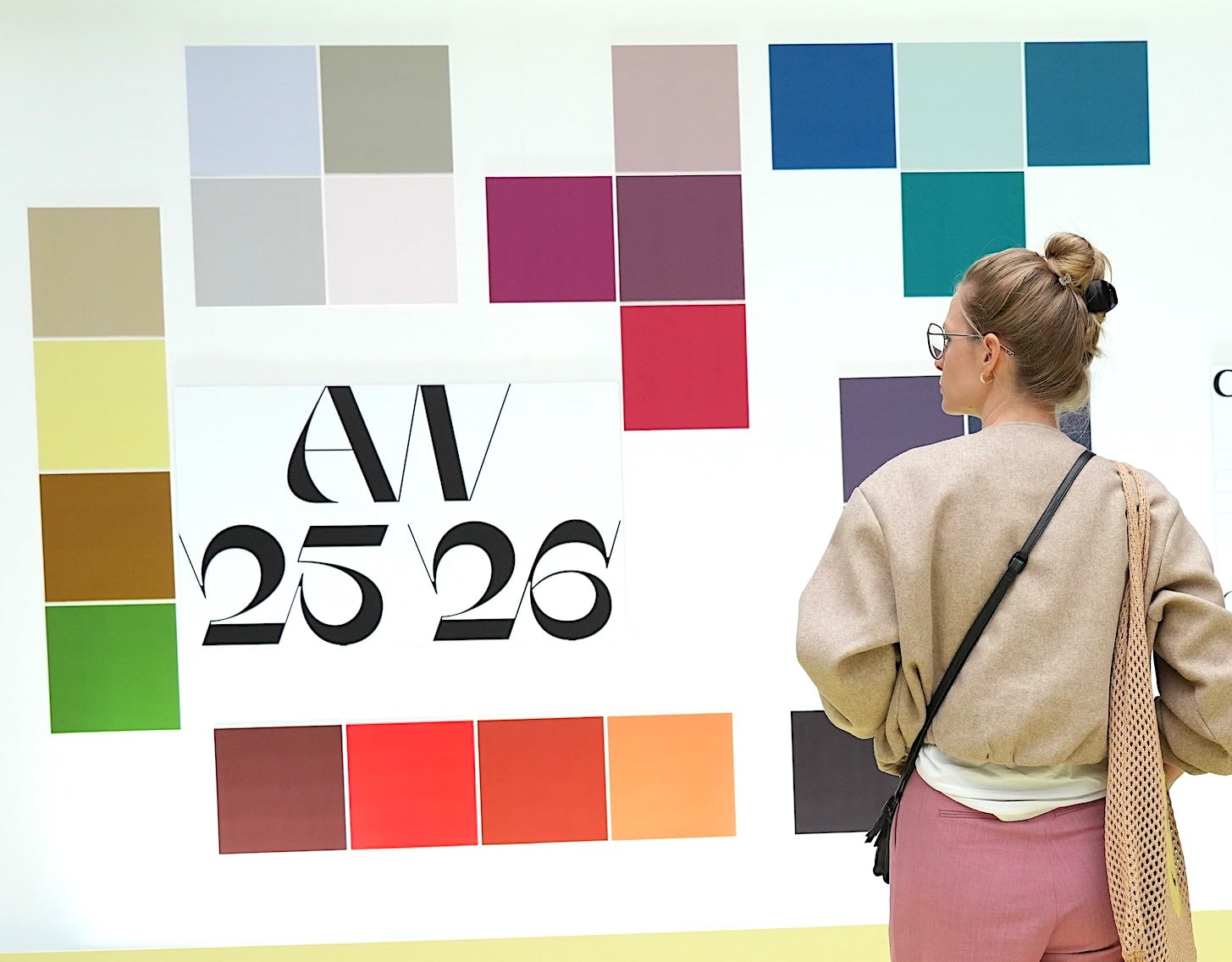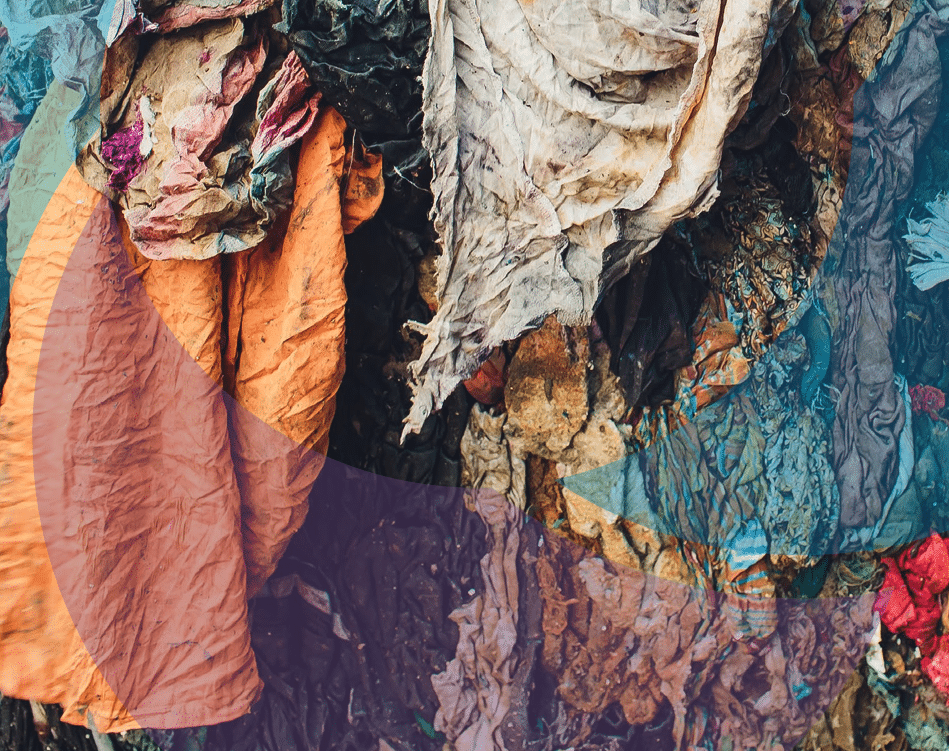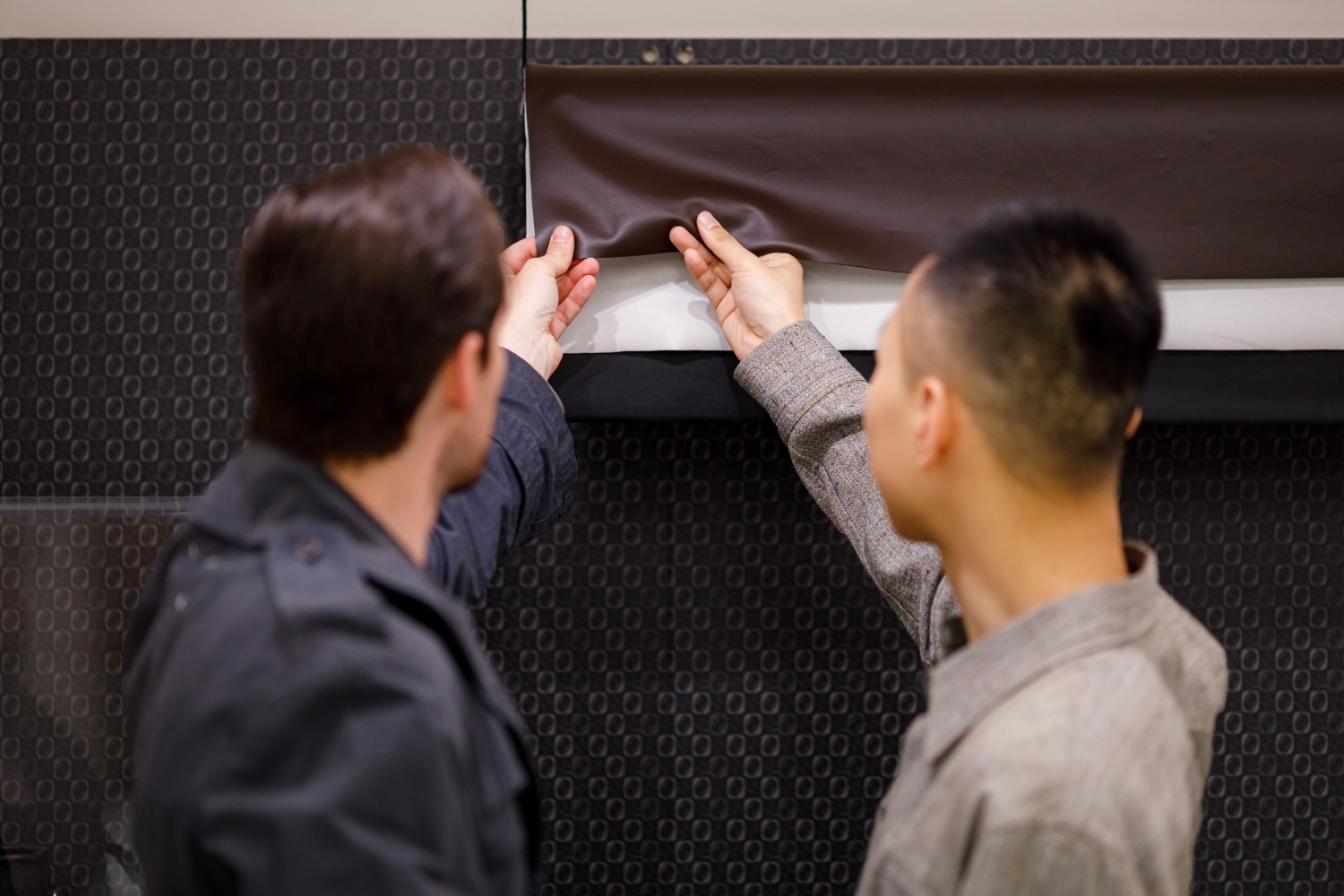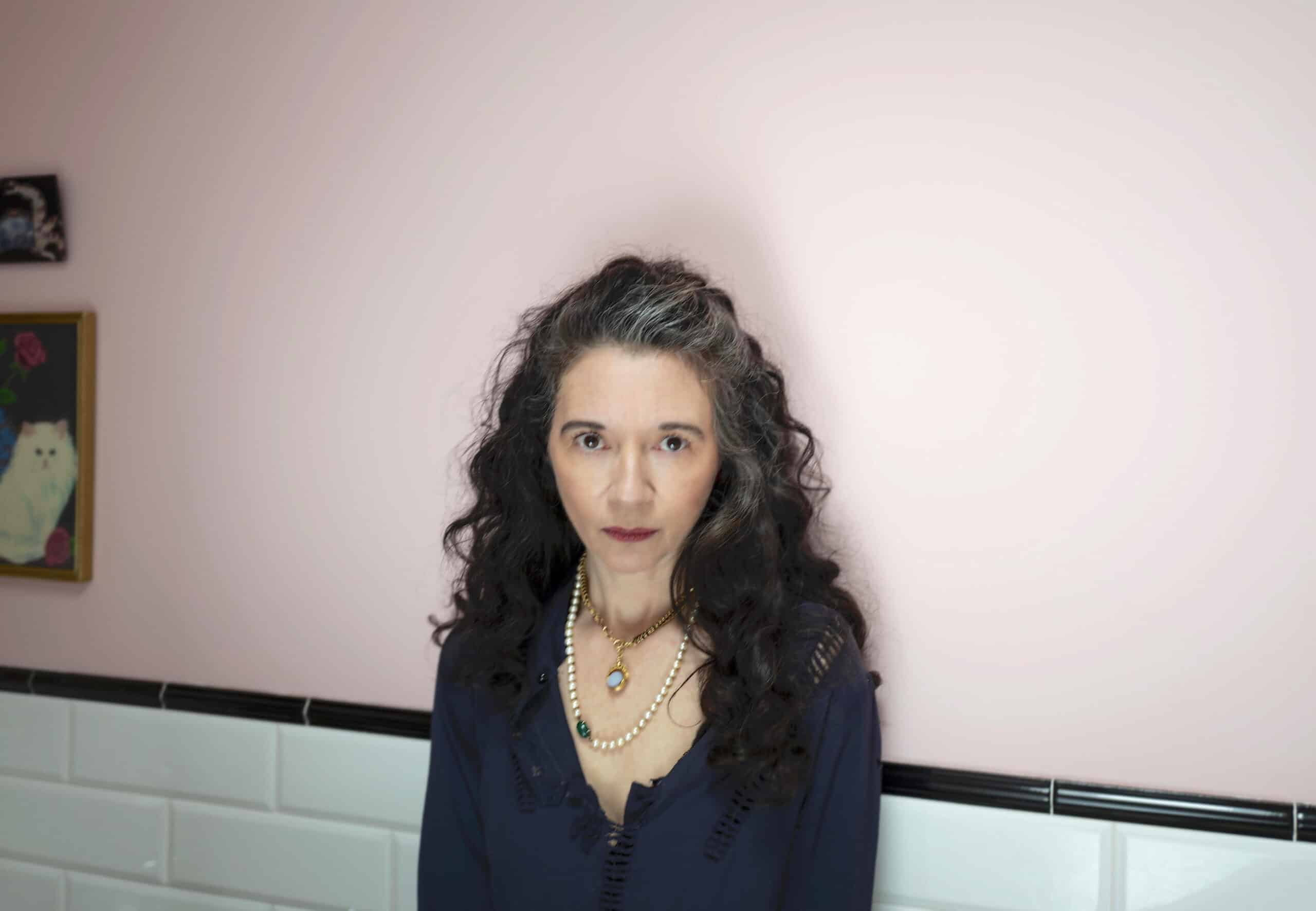
Orsola de Castro : “Upcycling is the key to transform the industry”
In a constantly evolving fashion world, few voices have been as influential as Orsola de Castro. As Fashion Revolution prepares to celebrate its 10th anniversary, we caught up with her. She looks back at the activist movement she co-created and its achievements, and explains her new ambitions in sustainable fashion.
For Orsola de Castro, Fashion Revolution, founded in 2013, highlighted the urgent need for systemic change in the fashion industry. At the same time, a global Fashion Revolution team was set up to determine its actions and objectives which, a year later, paved the way for the organisation to transform the fashion industry.
Focusing on decentralisation and inclusiveness, Orsola de Castro, “very proud and delighted to have founded this organisation“, pointed out that in its ten years of existence, Fashion Revolution has transcended its origins, since it is now run by a collective of employees and volunteers in 85 countries. For the last year and a half, she and the movement’s co-founder, Carry Somers, have taken a break from their day-to-day involvement to devote themselves to other projects.
Fashion Revolution: a global movement for change
The latest “Good Clothes, Fair Pay” campaign, which was rolled out on the organisation’s website, has become “a rallying cry that has encouraged collaborations far beyond the Fashion Revolution campaigns, highlighting fair pay for ethically produced clothes“, she explains. However, Orsola de Castro said that for now, this campaign only concerned the European team and was limited to this region.
The co-founder of Fashion Revolution also stressed the importance of transparency and traceability in supply and production chains, as demonstrated by the Fashion Transparency Index 2023 (click here to download it).
“This tool measures and reports exclusively on public disclosures rather than speculating, which allows stakeholders to examine practices and demand the accuracy of their work“, explains our guest. However, she recognises that transparency alone does not guarantee ethical practices, and that this is a crucial step towards accountability.
“We’re still far away from the industry we want to see”.
Orsola de Castro, co-founder of Fashion Revolution.
The power of Upcycling
One of Orsola de Castro’s main activities is upcycling, which she sees as an essential element in the transformation of the fashion industry. “I left Fashion Revolution because I want to concentrate on what I’m good at and what I’m passionate about: helping others to realise their projects and ambitions. »
In our interview, she pointed out that the term ‘upcycling‘ did not capture the essence of the process, preferring the term ‘reclaiming’. « From the Atacama desert in Chile to Ghana, upcycling and the reuse of clothing have become a modern craft that combats waste and promotes sustainability. That’s where I want to put my energy for the next ten or fifteen years. “
So, for the sustainable fashion expert, upcycling is a viable alternative to waste and the only current solution for managing excess. « As for recycling, although it significantly improves the current impact on the environment, it does require polyester injection. It also remains within the limits of capitalism, which is designed to produce ever more excess on a large scale, and cannot entirely stop the cycle of overproduction. That’s what we need to change ! »
Changing consumer culture
Orsola de Castro didn’t mince her words when she spoke about the role of consumers. While advocating clothes repair and thoughtful consumption – which she happily displays on her Instagram account with fun tutorials for mending all types of clothes – she insisted that it was essential to change the culture. « Repair your clothes and adopt a different mindset when you buy. And ask yourself: do you really need it? ».
She also vehemently refuted the idea that consumer demand is leading to overproduction, attributing it to a lie perpetuated by the industry:
« We were asked to consume something. If something isn’t produced, we don’t want it and we don’t buy it. Production is not based on consumer demand. It’s a lie to continue producing with very low quality and in poor conditions. Actually, no one needs the amount of clothes we consume.. »
The commitment of a mentor to help new generations
Today, Orsola de Castro feels that she has already made her voice heard enough. She now devotes her time to mentoring a new generation of designers and activists. In a few days, she will be flying to Hong Kong to take part in the Redress competition and, from a distance, she will be passing on her wisdom and knowledge to the young minds at the Circular Design Challenge in Mumbai. “India is a manufacturing giant, so there’s a lot of work to be done there when it comes to upcycling. »
At the end of September, she will also be travelling to Casablanca (Morocco) as part of a project organised by the United Nations for students at a technical college to introduce them to upcycling.
Aware of the impact of her travels on the environment, she explains: “I’ve travelled all over the world and I’m in the process of rethinking my professional life, drastically reducing my travels and favouring slow travel.
That’s why she will be travelling by train to the Hyères Festival in France in October. For this event, she coached the finalists in their luxury projects. « I just need the next generation to take over and their motivation is very different to the generation in power today! »
A future guided by a vision
She smiles. « I’m waiting patiently because, at the end of the day, people see me as a visionary. For me, vision is patience. When you have an idea, all you need is the patience to make it happen. »
Orsola de Castro’s vision of luxury is based on total transparency: retracing every stage of a product’s journey, showing the origin of the materials and the manufacturing processes.
« Let’s define luxury. For me, luxury is a question of pedigree. Without pedigree, you’re not an aristocrat! Luxury means nothing if you can’t show me the origin of the seeds you’ve sown… Every stage of production must be transparent. It’s the only luxury that makes sense to me. That’s why I want to develop a new luxury in line with regenerative agriculture and biodynamics to preserve our soils. “
As Fashion Revolution prepares to reach an important milestone – ten years of raising awareness and lobbying governments around the world for more ethical fashion – Orsola de Castro’s determination remains unshakeable. The organisation’s journey highlights the power of collective action in reshaping an industry. With upcycling as a cornerstone, Orsola de Castro looks forward to a future where sustainability and consciousness will drive every aspect of fashion.
Photos : Orsola de Castro




